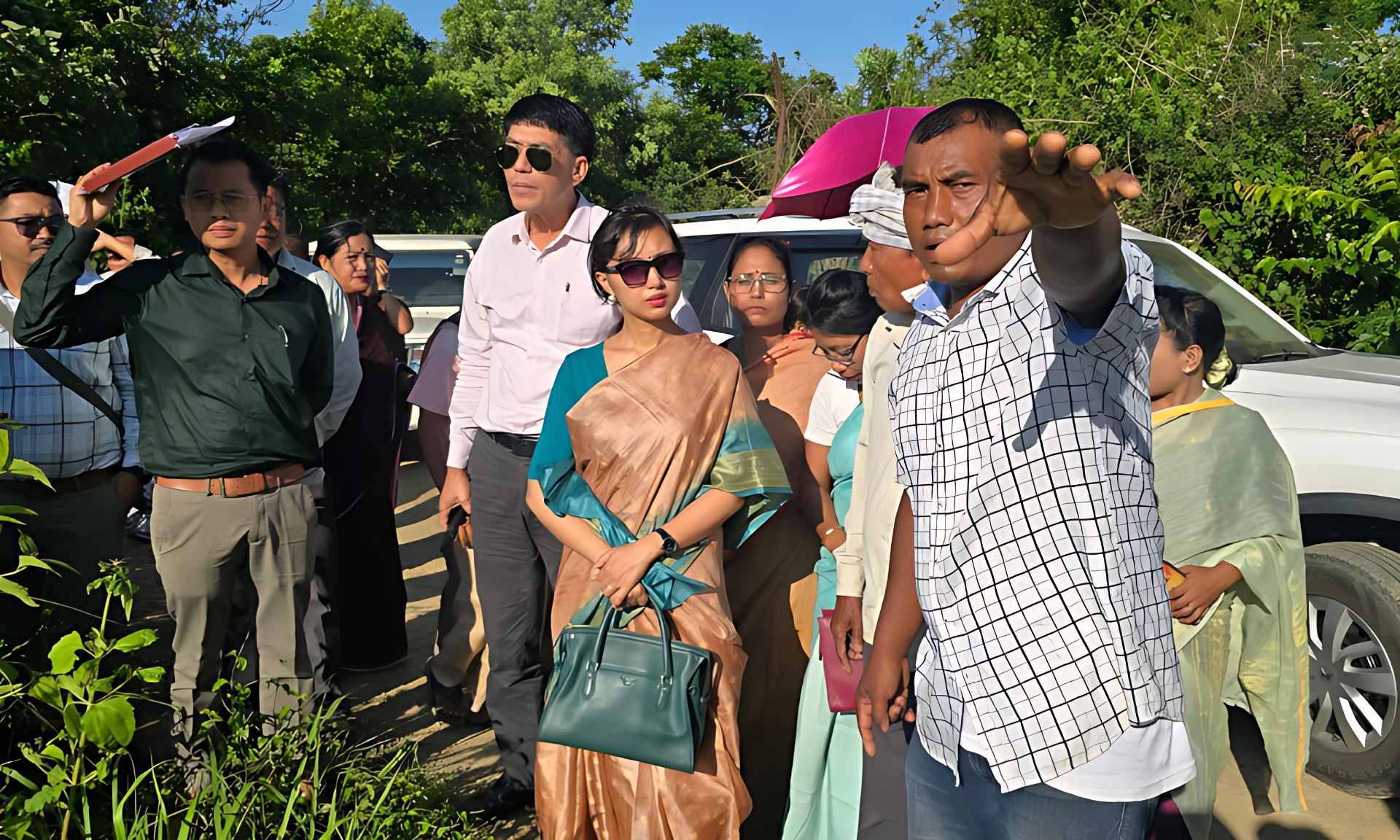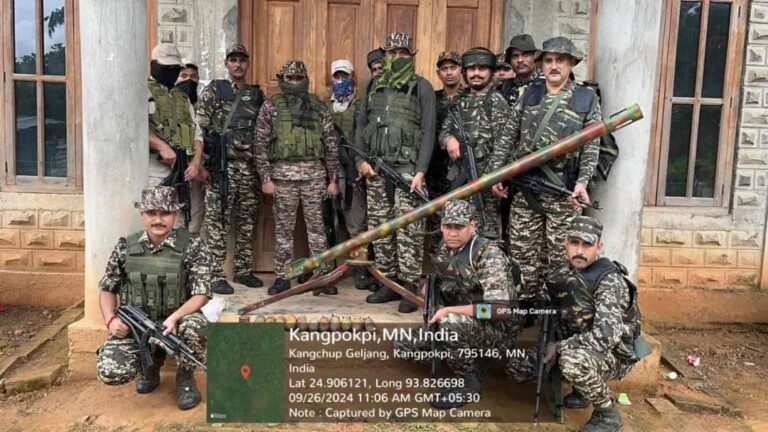Deputy Commissioner of Bishnupur district, Pooja Elangbam, inspected several agricultural sites across the district Struggling
Short Summary
Farmers in Manipur’s Bishnupur district are facing significant challenges accessing their fields during the monsoon season due to escalated security concerns stemming from recent ethnic violence. Following a June 19 shooting of a farmer, Ningthoujam Biren in Phubala, local cultivators have urged district authorities to ensure safe field access and improved water supply. Deputy Commissioner Pooja Elangbam conducted a field inspection and assured the community of administrative support and protective measures
Struggling Amid the Rains: Bishnupur’s Farmers Battle Security Fears
Introduction
Picture this: lush green paddies, heavy monsoon clouds, and hardworking farmers—yet they can’t step onto their land. That’s the grim reality in Bishnupur, Manipur. Rain or shine shouldn’t matter when your crops depend on it, but here, fear is washing over fields instead of water.
A Scary Incident with Big Ripples
Back on June 19, a farmer named Ningthoujam Biren was shot in his arm while working in Phubala. That incident didn’t just injure one man—it rattled the nerves of the whole district. Overnight, what was once fertile farmland turned into fearful territory
Why Are Fields Off‑Limits?
You might wonder, “Is it just one isolated event?” Unfortunately not. Bishnupur lies near Churachandpur, a region charged with ethnic tensions between Meitei and Kuki communities dating back to the 2023–25 violence, where over 258 people were killed and tens of thousands displaced These simmering tensions turn monsoon fields into potential flashpoints. For farmers, stepping onto their land could mean risking their lives.
On‑Field Advocacy: The Deputy Commissioner Steps In
Deputy Commissioner Pooja Elangbam took matters seriously—on July 18, she visited villages like Ngangkha Lawai, Naranseina, Phubala, and Thinungei. She heard firsthand how farmers are locked out of their livelihoods and cut off from vital water supplies. She promised to escalate their concerns, coordinate security, and fast-track solutions for water and field access
The Heart of the Struggle
For farmers, fields are more than land—they’re a source of food, income, and dignity. Being forcibly kept off their own land is like being locked out of your home. Add rural poverty to the mix, and the stakes skyrocket. When fields go untended, infiltrating wildlife, drought stress, and soil deterioration creep in. It’s a domino effect—economic hardship looms, harvests dwindle, and entire families suffer.
Security: A Fragile Promise
Farmers aren’t asking for armed convoys; they’re asking for safe passage. They want a security presence that lets them plant and tend with confidence, not fear. It’s like asking for a gardener to safely tend a garden churned by storms. Deputy Commissioner Pooja Elangbam assured them that actions are underway and officials are listening—but in conflict zones, words need swift action to be genuine.
Water Woes Compound the Crisis
On top of fear, there’s a water crisis. Vibrant paddies need monsoon and irrigation alike, but villages like Thinungei lack sufficient water. Without pumps, canals, or rainwater harvesting, even if farmers could access fields, there’s no guarantee they’d reap a harvest. It’s a double whammy—blocked access and dried wells—threatening both food security and daily living needs.
What’s Being Done—and What’s Missing?
The Deputy Commissioner’s visit is a step, but much remains:
- Security Plans
• Deploying local police patrols and temporary checkpoints.
• Collaborating with community leaders to build trust across ethnic lines. - Water Access Initiatives
• Emergency water tankers to parched villages.
• Fixing borewells, repairing canals, and repairing pumps. - Crop Support Schemes
• Crop insurance for losses due to insecurity or neglect.
• Subsidies for seeds and fertilizer to boost resilience. - Community Dialogues
• Building cross-cultural harmony to ease tensions.
• Establishing early-warning groups for quick alerts.
Conclusion
Bishnupur’s fields shouldn’t be war zones. They should be places of growth and renewal. Deputy Commissioner Elangbam’s visit highlighted the issue—but dialogue must turn into real change. Monsoon is a season of growth; let it be a season of action too.
FAQs
1. What triggered this crisis in Bishnupur’s farms?
A June 19 shooting of farmer Ningthoujam Biren in Phubala sparked fear, leading many farmers to avoid their fields amid rising regional tensions
2. Why is security a major concern for farmers?
Bishnupur’s proximity to conflict zones, especially following the 2023–25 ethnic violence that displaced over 60,000 people and destabilized farmland areas, escalates their risk
3. What did Deputy Commissioner Pooja Elangbam do?
She visited several villages, gathered firsthand grievances, assured farmers of administrative backing, and promised to coordinate protective and water access measures
4. Besides security, what’s another major issue?
Water scarcity is a critical concern—villages like Naranseina and Thinungei lack proper irrigation or pump systems required for successful farming
5. How can this crisis be solved?
Three-pronged action is needed: enhanced local security patrols, emergency water infrastructure, and long-term peacebuilding and farmer support schemes like insurance and subsidies.


